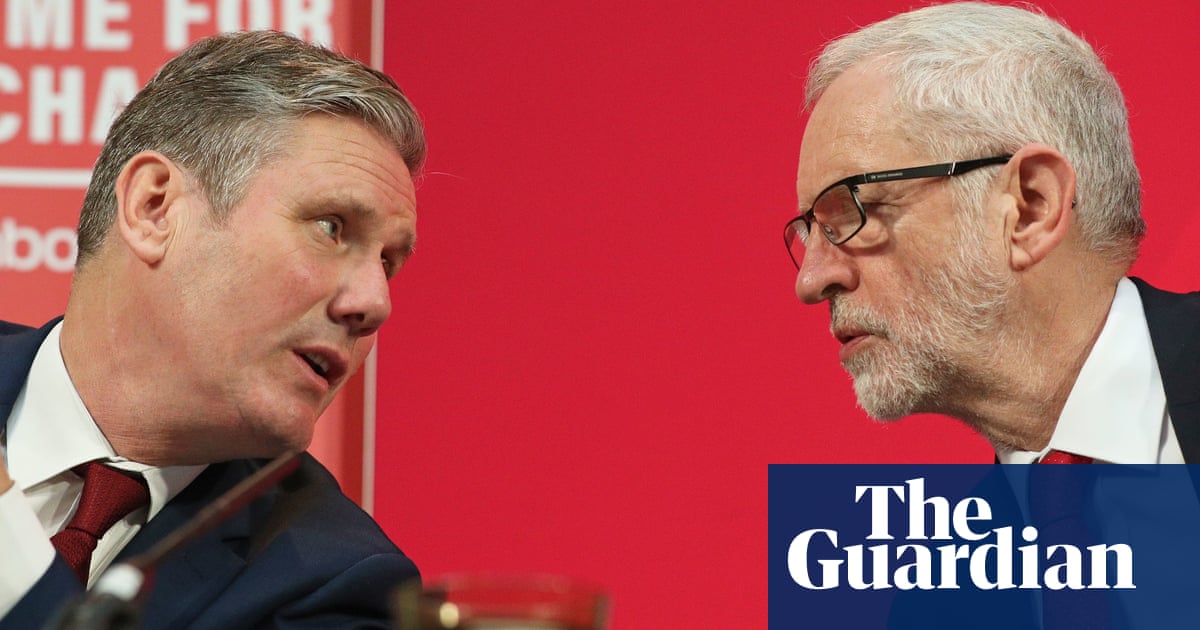
Labour has been taken out of special measures by the equalities watchdog, with Keir Starmer hailing progress in tackling antisemitism as a watershed moment for the party.
In a speech on Wednesday, Starmer will herald the party’s progress while saying there is still significant work to be done.
“Be in no doubt: the job of restoring Labour is not complete,” he will say. “I don’t see today’s announcement as the end of the road. I see it as a signpost that we are heading in the right direction.”
It is 18 months since the Equality and Human Rights Commission found the party had acted unlawfully in its treatment of Jewish members under Jeremy Corbyn’s leadership.
The fallout led to the suspension of Corbyn from the party after disagreement over his response to the report. He was reinstated by the party but Starmer has continued to suspend the whip.
Labour said it had expelled hundreds of members, in a process that has caused deep splits in the party, and proscribed Labour-associated groups that had campaigned against the EHRC recommendations.
The former Labour MP Ruth Smeeth, who detailed extensive antisemitic abuse she received, said she would be “forever grateful” for the progress made under Starmer.
“This is such a welcome development from the EHRC and demonstrates quite how far the Labour party has come under Keir’s leadership to tackle the stain of anti-Jewish hatred that had become so prevalent under the last leader,” she said.
“This doesn’t mean that the job is done but we are in such a better place and Keir has delivered on every promise he made on tackling antisemitism.”
Starmer has also issued an ultimatum to Labour MPs who oppose his plans for government to either support him or leave the party.
He said the changes he has overseen since taking over from Corbyn in 2019 are “permanent, fundamental, irrevocable”.
Writing in the Times, he said: “The changes we have made aren’t just fiddling around the edges or temporary fixes.
“There are those who don’t like that change, who still refuse to see the reality of what had gone on under the previous leadership.
“To them I say in all candour: we are never going back. If you don’t like it, nobody is forcing you to stay.”
The EHRC said the party had made the necessary changes in an action plan, which meant it could conclude its work. Its October 2020 decision had meant the party had to produce a legally enforceable plan to prevent similar discrimination.
Starmer will call for a “moment of reflection” rather than celebration but nevertheless will say it is “an important moment in the history of the Labour party” and repeat an apology to members subjected to abuse.
“To all those who were hurt, who were let down, who were driven out of our party, who no longer felt it was their home, who suffered the most appalling abuse, today, on behalf of the entire Labour party, I say sorry,” he will say.
“What you have been through can never be undone. Apologies alone cannot make it right.”
The Jewish Leadership Council chair, Keith Black, said the party now had a “radically different approach” but added a note of caution. “There is still much work to do. Cultural change is always slow,” he said.
Labour said it had complied with the EHRC’s programme for change, including clearing a backlog of antisemitism complaints, changing its complaints-handling processes and setting up independent complaints processes.
Adam Langleben, the national secretary of the Jewish Labour Movement, who compiled more than 70 whistleblower testimonies to submit for the original EHRC complaint, said the party had been in “moral turpitude and political denial” and become “an unsafe space for Jews”.
He said JLM had since delivered training to thousands of members and key officials. “Jews can once again call Labour their natural home and have no concerns about voting for it,” he said.
Starmer will hope the announcement from the EHRC will be the close of a painful chapter in the party’s history, though there are still significant repercussions.
The 2020 report concluded that Labour could have tackled antisemitism more effectively “if the leadership had chosen to do so”. It found “there was political interference in the handling of antisemitism complaints”, which it said was part of a “wider practice” of the leader of the opposition’s office getting involved “in disciplinary cases that were deemed ‘politically sensitive’”.
Corbyn initially responded to the report by saying the scale of the problem had been “dramatically overstated for political reasons” by opponents and the media.
He was readmitted as a Labour member by the party’s governing national executive committee but Starmer has refused to restore the whip.
Starmer’s Labour has taken a ruthless approach to candidate selections, with supporters of Corbyn being blocked from shortlists for seats.
Divisions in the party have been compounded by a similarly damning report by the barrister Martin Forde into toxic factionalism in the party, including from the anti-Corbyn wing, which he said hampered the process.
Forde was also deeply critical of anti-black racism in the party, saying there was “overt and underlying racism and sexism” in abusive WhatsApp messages that were leaked from staffers opposed to Corbyn’s leadership.












